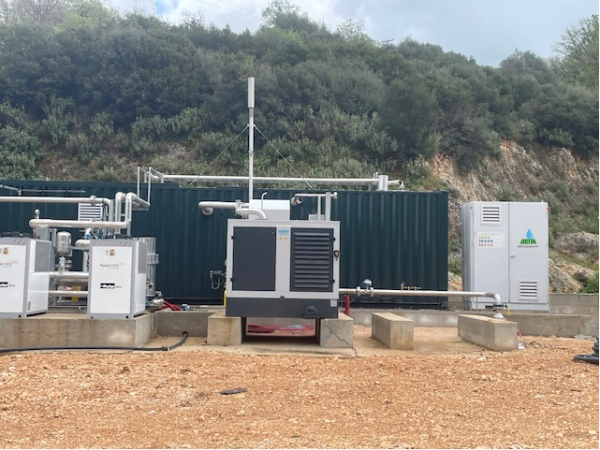
“Small businesses are one of the main structural problems of the Greek economy,” said Gerd Heller in an article in Handelsblatt. That is why, as he notes, the government “is seeking to send a message to these companies, through tax breaks, attractive loans, and subsidies, that they can develop following the process of mergers, acquisitions, and partnerships.”
According to the article, today almost half of Greek companies (48.5% to be precise) employ less than 10 employees, while the corresponding average in other EU countries is 30%. In contrast, only one in five companies has more than 250 employees. Also, 56% of employment in Greece comes from positions in companies with a maximum of 5 employees.
Lack of competitiveness
This situation is estimated to be a clear disadvantage in terms of innovation, productivity, and liquidity. That is why, during the financial crisis and the current pandemic crisis, many companies have been and will be driven to bankruptcy, despite government support.
“We want to help small businesses grow,” Alexis Patelis, economic adviser to Prime Minister Kyriakos Mitsotakis, told Handelsblatt. “We can achieve this with the classic method of mergers, but at the same time with platforms that will contribute to the creation of business clusters,” he added.
According to the government plan, the financial staff of the Greek government is already working on a specific plan, which they intend to present to parliament in the summer. Through this and the incentives it will include, it is hoped that a wave of mergers, acquisitions and the creation of cooperatives will be triggered, which will gradually change the image of Greek entrepreneurship, making it more competitive and at the same time more resilient to future crises.
Towards a “green and digital economy”
“We hope that with this process we will increase the average size of Greek companies, in order to enhance their productivity and export potential”, notes on his part the Deputy Minister of Finance, Theodoros Skylakakis.
At the same time, it clarifies that the new framework – which will be part of the overall “Greece 2.0” plan – will include specific and strict criteria and controls that will ensure that the reclassifications are in line with the EU’s overall goals of turning to “green and digital economy”. It is logical, as in this process part of the funds from the Recovery Fund that the country expects will be utilized.
So, is the “death of the (Greek) salesman” just around the corner?
Latest News

Trump Tariffs Jeopardize Growth: Piraeus Chamber of Commerce
The tariffs, aimed at reducing the U.S. trade deficit, are expected to have both direct and indirect effects on the European economy

EU Condemns Trump Tariffs, Prepares to Retaliate
As tensions escalate, the EU is expected to continue negotiations with Washington while preparing for potential economic retaliation.

The Likely Impact of Trump Tariffs on Europe and Greece
Trump tariffs are expected to negatively affect economic growth in the Eurozone while Greece's exports could take a hit.

Motor Oil Results for 2024: Adjusted EBITDA of 995 mln€; Proposed Dividend of 1.4€ Per Share
Adjusted EBITDA for 2024 was down 33% yoy. The adjusted profit after tax for 2024 stood at 504 million euros, a 43% decrease from the previous year

Cost of Living: Why Greece’s 3% Inflation Is Raising Alarm
Greece appears to be in a more difficult position when it comes to price hikes, just as we enter the era of Trump’s tariffs.

Fitch Ratings Upgrades the Four Greek Systemic Banks
NBG’s upgrade reflects the bank’s ongoing improvements in its credit profile, Fitch notes in its report, including strong profitability, a reduction in non-performing exposures (NPEs), and lower credit losses

Trump to Announce Sweeping New Tariffs Wednesday, Global Retaliation Expected
With Trump's announcement just hours away, markets, businesses, and foreign governments are bracing for the fallout of one of the most aggressive shifts in U.S. trade policy in decades.

Inflation in Greece at 3.1% in March, Eurostat Reports
Average inflation in the eurozone settled at 2.2%, compared to 2.3% in February

Greece’s Unemployment Rate Drops to 8.6% in February
Despite the overall decline, unemployment remains higher among women and young people.

Jerry Kalogiratos Highlights Key Role of Energy Transition and Data Demand in LNG Outlook
Energy transition and the prospects of LNG were discussed at Capital Link’s 19th Annual International Maritime Forum, during a panel discussion with Jerry Kalogiratos (Capital Clean Energy Carriers Corp.)
























![ΕΛΣΤΑΤ: Αυξήθηκε η οικοδομική δραστηριότητα κατά 15,6% το Δεκέμβριο [πίνακες]](https://www.ot.gr/wp-content/uploads/2025/03/DSC9655-2-1024x569-1-90x90.jpg)

















 Αριθμός Πιστοποίησης
Αριθμός Πιστοποίησης